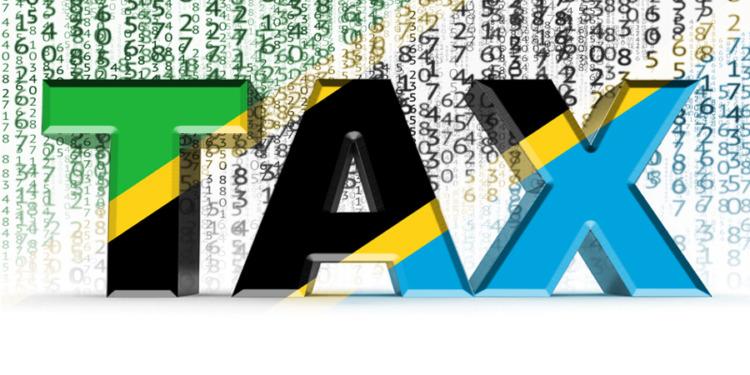As a low-middle-income country, Tanzania is fairly doing its best in financing its development efforts by utilising its internal funding strategies, and tax is a part of that.
In the past five years, under the leadership of the late President John Magufuli, Tanzania broke its revenue collection record and managed to self-finance nearly 40 per cent of dividends collected from companies it holds a stake in.
Earlier last year, Tanzania Revenue Authority (TRA) hit a record collection of 100.02 per cent of its total revenue in December 2019, of which it exceeded its monthly target, which was more than $860 million.
Read: Tanzania considers tax breaks to cushion economy
“This is the highest score for a particular month since an establishment of TRA” the former TRA Commissioner General, Dr Edwin Mhede noted.
According to the former taxman, this magnificent record-breaking achievement was a fruit of hard labour put on enforcement of existing laws and regulations, managing tax evasion loopholes, education to taxpayers, regulating the provision of Electronic Fiscal Device (EFD) receipts and improving services.
Henceforth, in Tanzania, the tax regime is made up of several direct and indirect taxes including income tax, Value Added Tax (VAT), import duty, excise duty and stamp duty.
Tax is a valuable economic tool to Tanzania, as it has become a new haven for funding development over the past five years. In the past weeks, the government has already brought the possibility of incorporating digital technology in collecting taxes.
According to information from The Citizen, the Finance and Planning minister, DR Mwigulu Nchemba, noted that multinational companies such as Google, Facebook and Twitter, we’re on the government list of tax sources.
“We are discussing the possibility of taxing these international companies which get big chunks of money from our people – but don’t pay tax on it,” the minister revealed.
The current taxation blocks
However, the high revenue collection tides are faced with strong challenges, as a new study by Action Aid with the title, How the Government is Losing Taxes: Need to Work on Closing Loopholes Leading to Losses in Tax Revenue, noted that, the government of Tanzania may have lost up to $214.63 billion in the past eight years due to flaws within the tax administration system, harmful tax incentives, double taxation, and problematic implementation of development projects.
Hence, the study suggests that Tanzania could be losing even bigger as the taxation system falls short of robust mechanisms.
Further on this, the government of Tanzania argued that it is looking on a different option of efforts to diversify revenues sources, according to the Permanent Secretary in the Ministry of Finance and Planning, Mr Emmanuel Tutuba as noted by The Citizen.
Read: Tanzania: Electronic stamps improving tax collection
The World bank pins Tanzania taxation efforts at a $6 billion per year rate, which is a figure equivalent to at least 12 per cent of its GDP (World Bank). This rings a much louder bell, whereby the long-standing development partner to Tanzania, argues that the collected amount only covers three-quarters of government expenses.
Another issue to look upon, is the role of internal tax collection in funding development projects, as other sources of funding run dry such as I inflow, from the private sector and multinationals.
According to a 2015 WB publication, Why Tanzanian Should Pay Tax, an interesting agenda was raised, arguing for, the fact that it is costly to pay taxes, as the ease of paying taxes in Tanzania isn’t that good.
In terms of numbers, Tanzania ranks at 165 on paying taxes, with 59 payments per year, hence the WB publication argued for a much more streamlined and simplified taxing system.
“It is a normal thing for a country like Tanzania and elsewhere to design new sources of revenues to move with a new business environment. Those who are saying the government should not look for other sources of income but to concentrate on corporate and incentives tax are not conversant with taxes and their sources,” the minister noted.
Further, the document entailed that, from other potential resources streams, the government couldn’t manage to garner $47 billion in taxes from the informal economy in the past eight years.
Also, due to inefficiencies at the Local Government Authority level LGA) the government failed to collect $50.2 million and $133.8 was unpaid tax arrears. While, $156.9 billion was held up in unresolved tax appeals, while $10 billion was lost in illicit financial flows, according to information from The Citizen.
With all these numbers presented, there are important issues that need to be addressed, for these tax holes to be no more.
The World Bank argues that broadening the tax base is vital, as close to 90 per cent of tax revenue are generated by Dar es Salaam, “yet the city contributes to less than 20 per cent of the national GDP.
Further on that, the WB argues that “there is a huge imbalance between the taxation on labour and capital income. Tax collection should be diversified to under-taxed sectors and regions. Property taxes should be appropriately used not just to boost government revenues but also to improve land management “.
Improving tax systems will do well for Tanzania as the country works towards enhancing its development initiatives and upgrading the economy.











